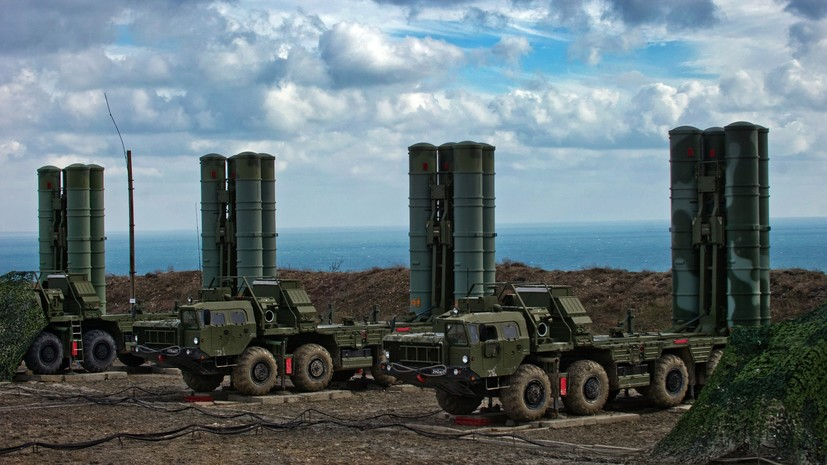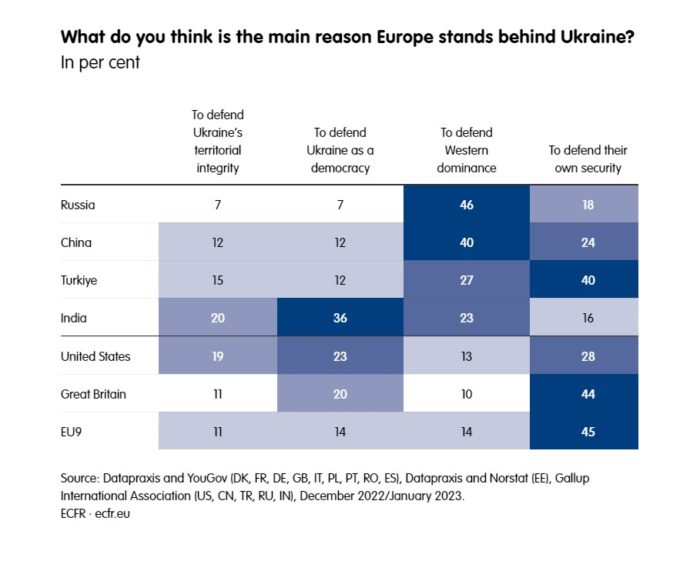What allows Russia's military-industrial complex (MIC) to continually manufacture and repair military equipment, which then devastates Ukrainian cities?
Foreign companies play a major role by supplying Russia with hardware and service maintenance.
Despite previous sanctions imposed against the Russian MIC in 2014 and the most recent sanctions packages, Russian defense enterprises continue to purchase and use hardware supplied by foreign companies.
Russia has long struggled to produce high-quality technological solutions they regularly like to boast about. For this reason, Moscow is constantly searching for legal loopholes to ensure its military-industrial complex is supplied with the most advanced hardware.
In turn, foreign businesses continue to cooperate and provide service maintenance to the state accused of sponsoring terrorism.
Which German companies continue to cooperate with Russia's MIC
1. Walter: a German metalworking company supplying equipment to Russian defense giants
Germany’s Walter AG is considered one of the world’s leading metalworking companies and offers an extensive range of products in demand all over the world.
Following the Russian invasion of Ukraine, the company has not issued a statement regarding the termination of its activities in Russia, and Russian businesses continue to procure their equipment through domestic tenders.
Walter AG is a long-term and large-scale supplier of equipment to Russian defense companies. The company has a multitude of operating representative offices in Russia.
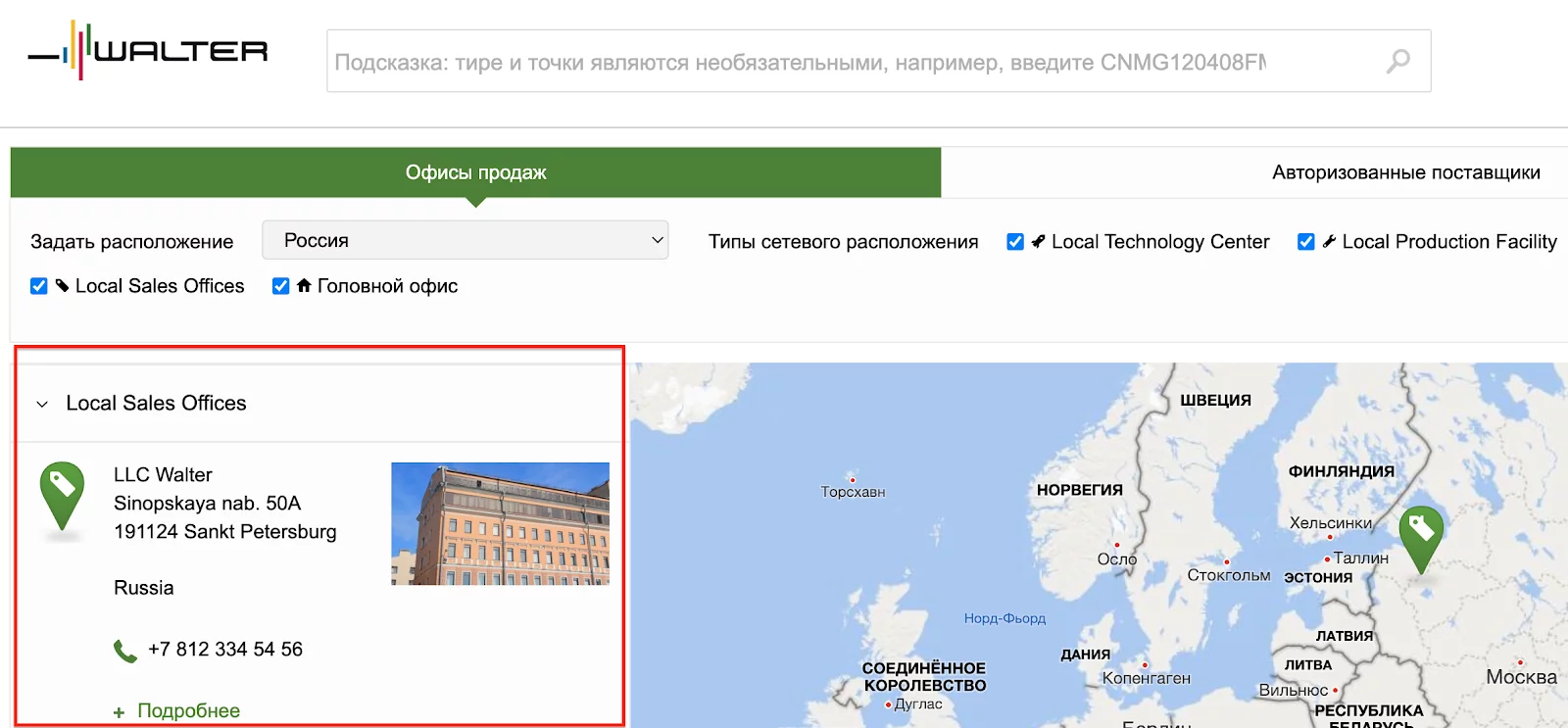
Walter's Russian representative office supplied its products to the Russian Mayak plant, which produces nuclear weapons and isotopes, and to the Splav plant, which manufactures Grad, Uragan, and Smerch multiple launch rocket systems (MRLS).
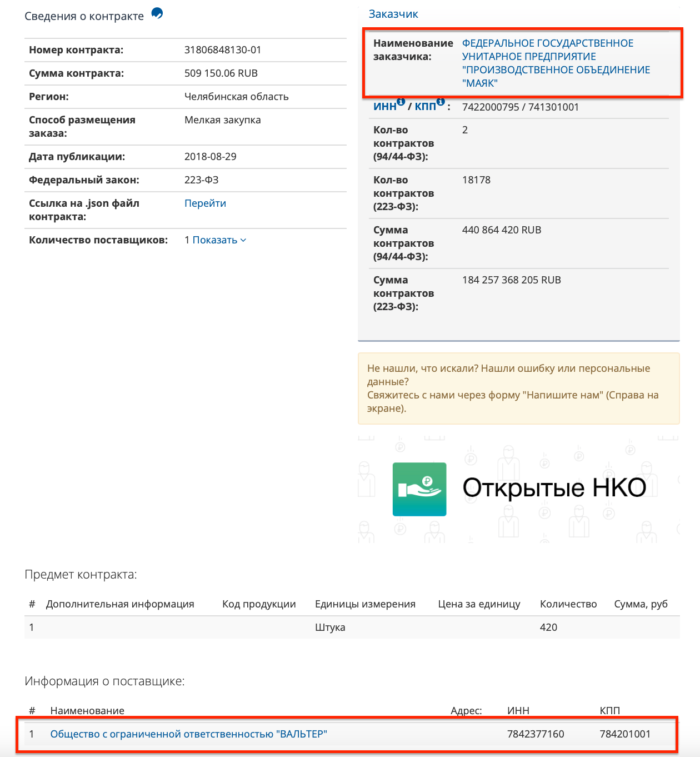
Furthermore, Walter AG's products are utilized by the Obukhov State Plant, (a subsidiary of Almaz-Antey), which manufactures command posts for strategic missile forces.

The company’s products are also found at the Uralvagon plant, which produces T-14 “Armata” and T-72 tanks.

Even now, Walter's products are in great demand in Russia: they are actively purchased by Russian state enterprises via tenders, and the company does not take any legal action to prevent their products from being purchased in Russia.
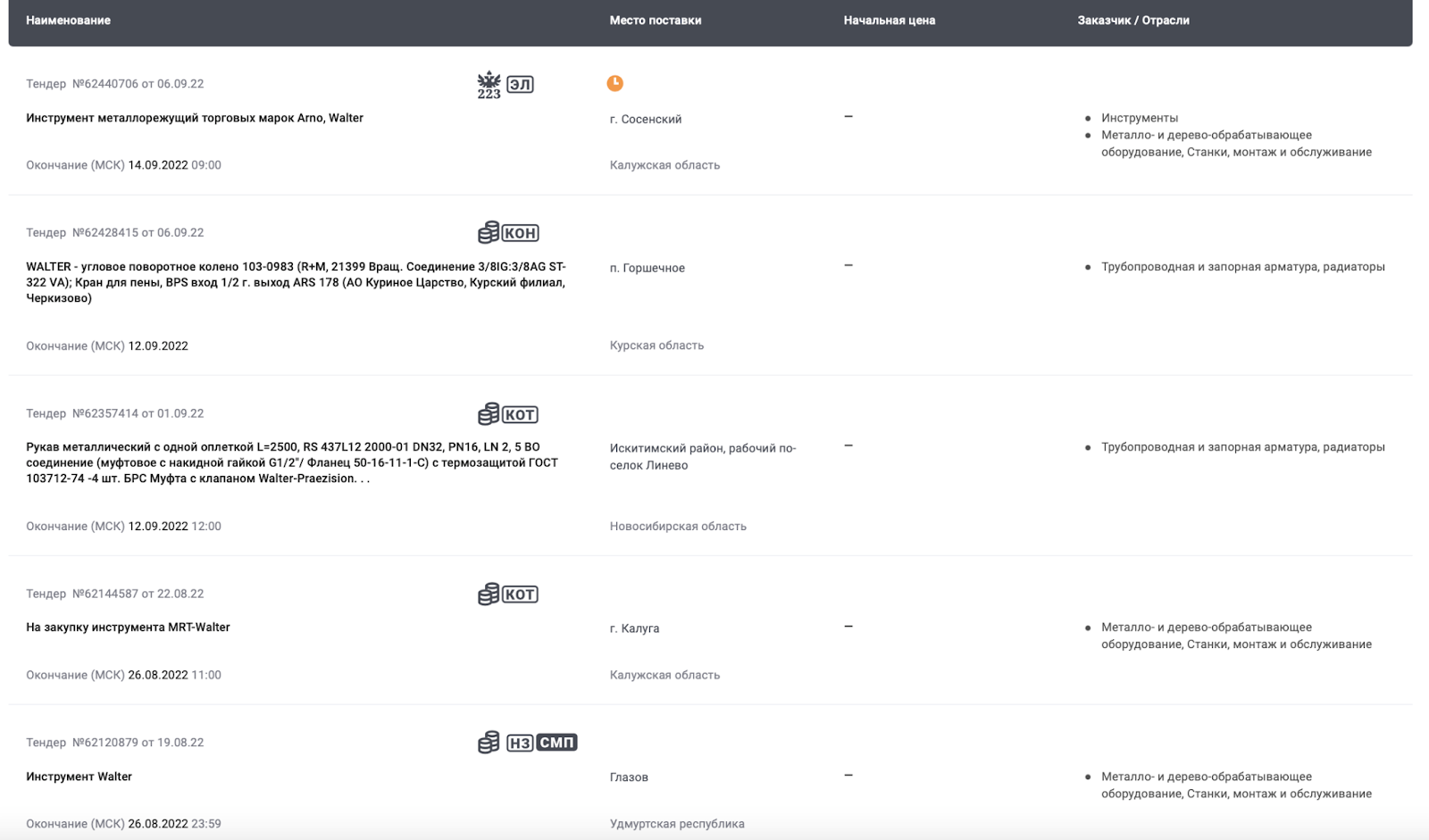
Therefore, Walter AG’s products are critical to most enterprises that form part of the Russian MIC, particularly those that are under sanctions. Furthermore, the company continues servicing its equipment.
2. Schunk GmbH & Co. KG: metal processing for Russia's sanctioned aviation plants
But that is not all. Russia’s MIC relies on another German company for its equipment. Its name is Schunk GmbH & Co. KG.
Schunk GmbH & Co. KG (not to be confused with Schunk Group, also a German industrial company, which coincidentally has the same name, but is a totally different company that has completely ceased its business relations with Russia) is a metal processing manufacturer. It has 34 subsidiaries and trading partners in more than 50 countries around the world.
Just as Walter AG, Schunk GmbH & Co. KG has not issued a statement regarding the suspension of activities in Russia. Russian businesses continue to procure Schunk’s equipment through domestic tenders.
The company's website still features its Russian office - SCHUNK Intec OOO. As well, the company had not made a statement regarding the exit of SCHUNK GmbH & Co. KG from the Russian market, which is confirmed by the company's official website.
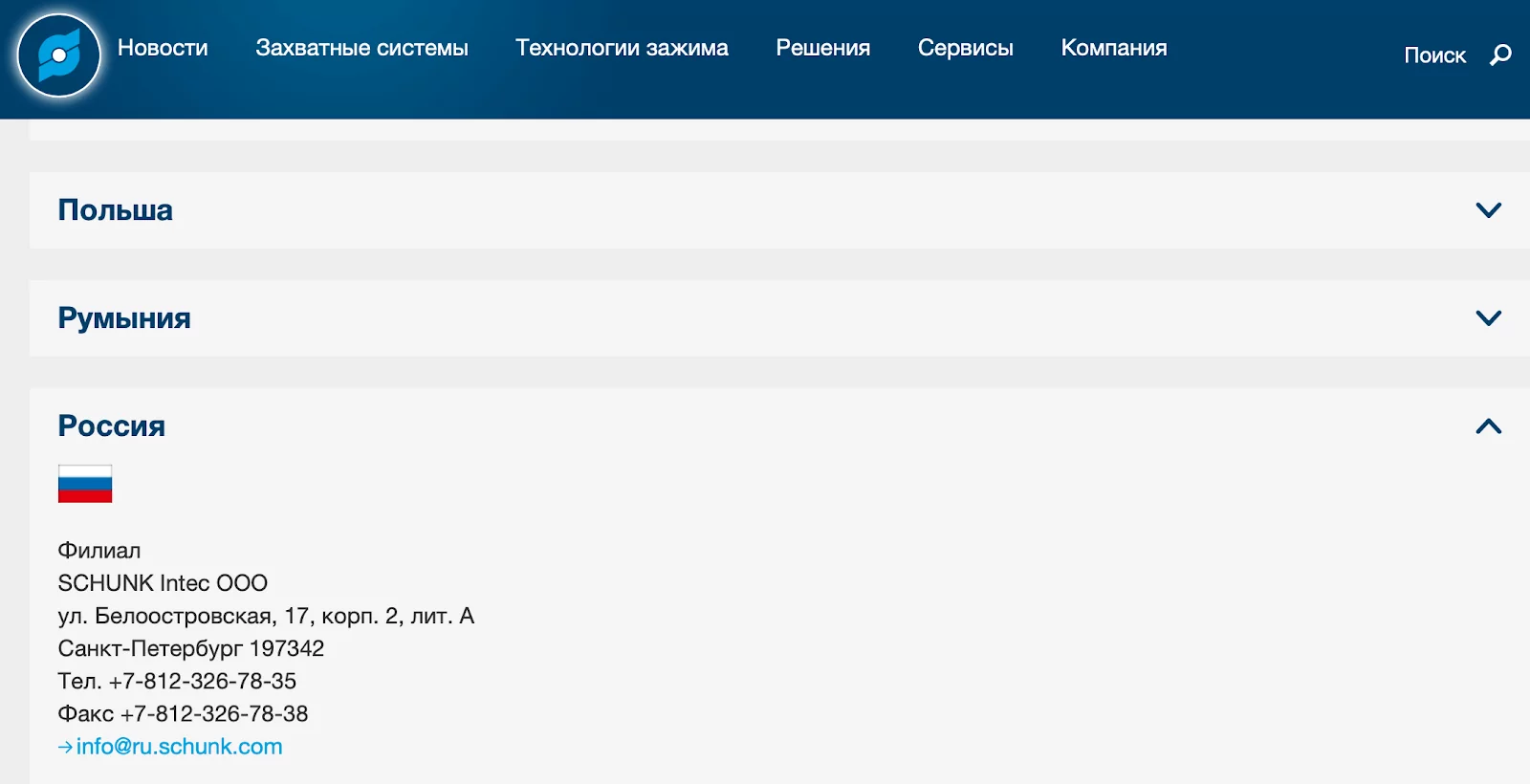
In addition, the contact details of the client department in Russia are directly indicated on the company's website, and nothing indicates that it could have terminated work.

In 2015, Shunk supplied equipment to the Sukhoi plant, a Russian manufacturer of aircraft for military and civilian purposes.
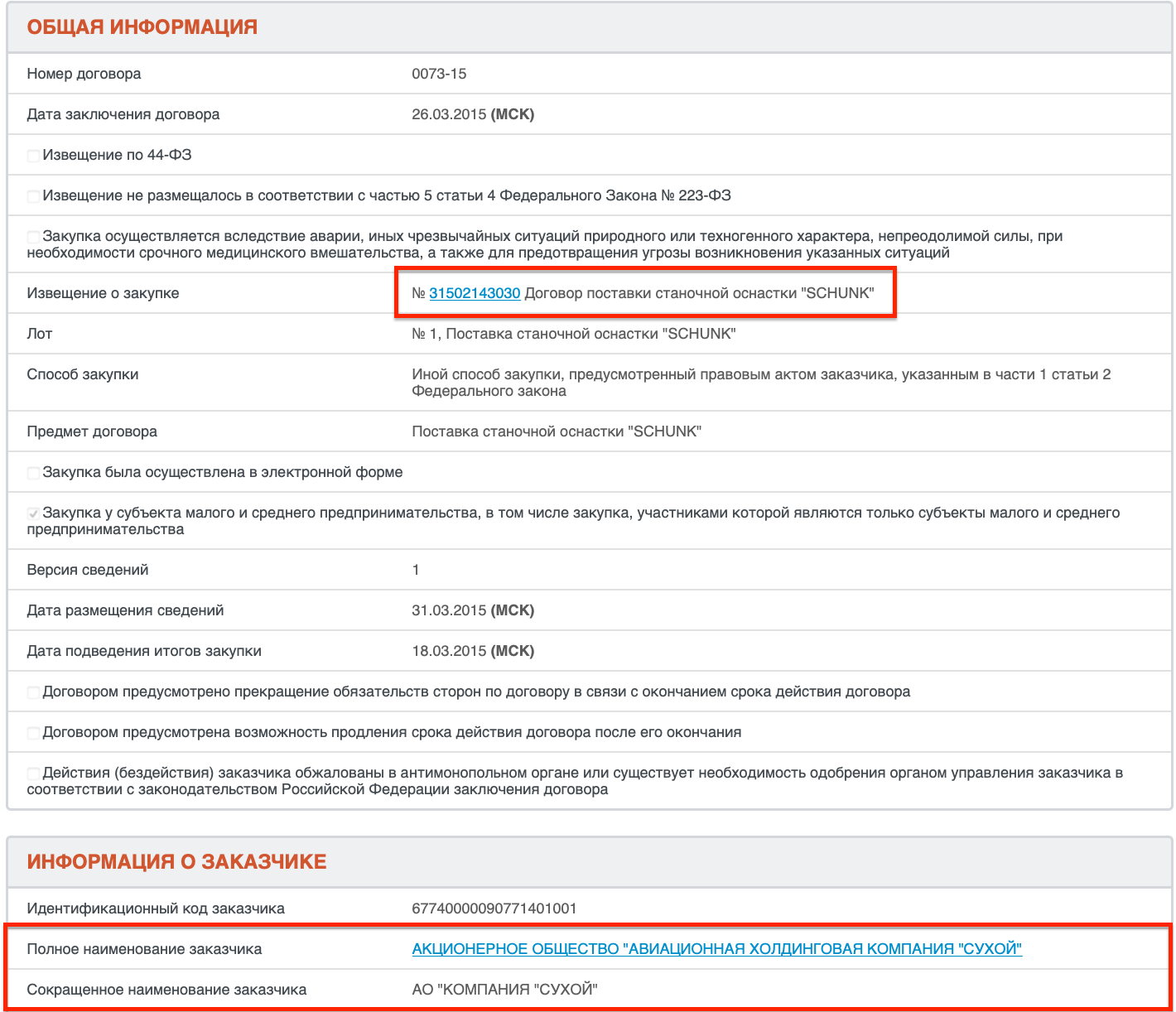
Schunk products are also used by the Ulyanovsk Mechanical Plant, which produces the Buk, Tunguska, and Shilka air defense systems, as well as by the Ulan-Ude aviation plant.
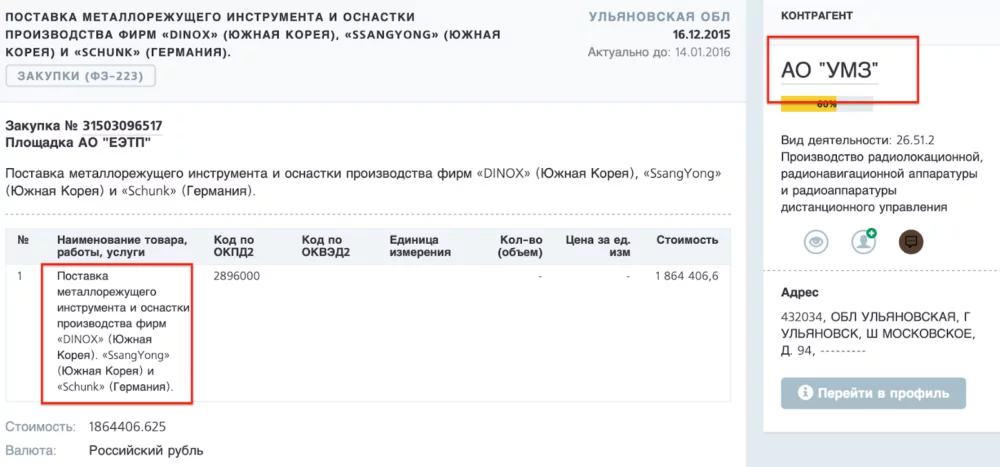
As of June 2022, the products of the Schunk company are in demand, the company is not taking any legal action to ensure that their products are not supplied and sold in Russia.
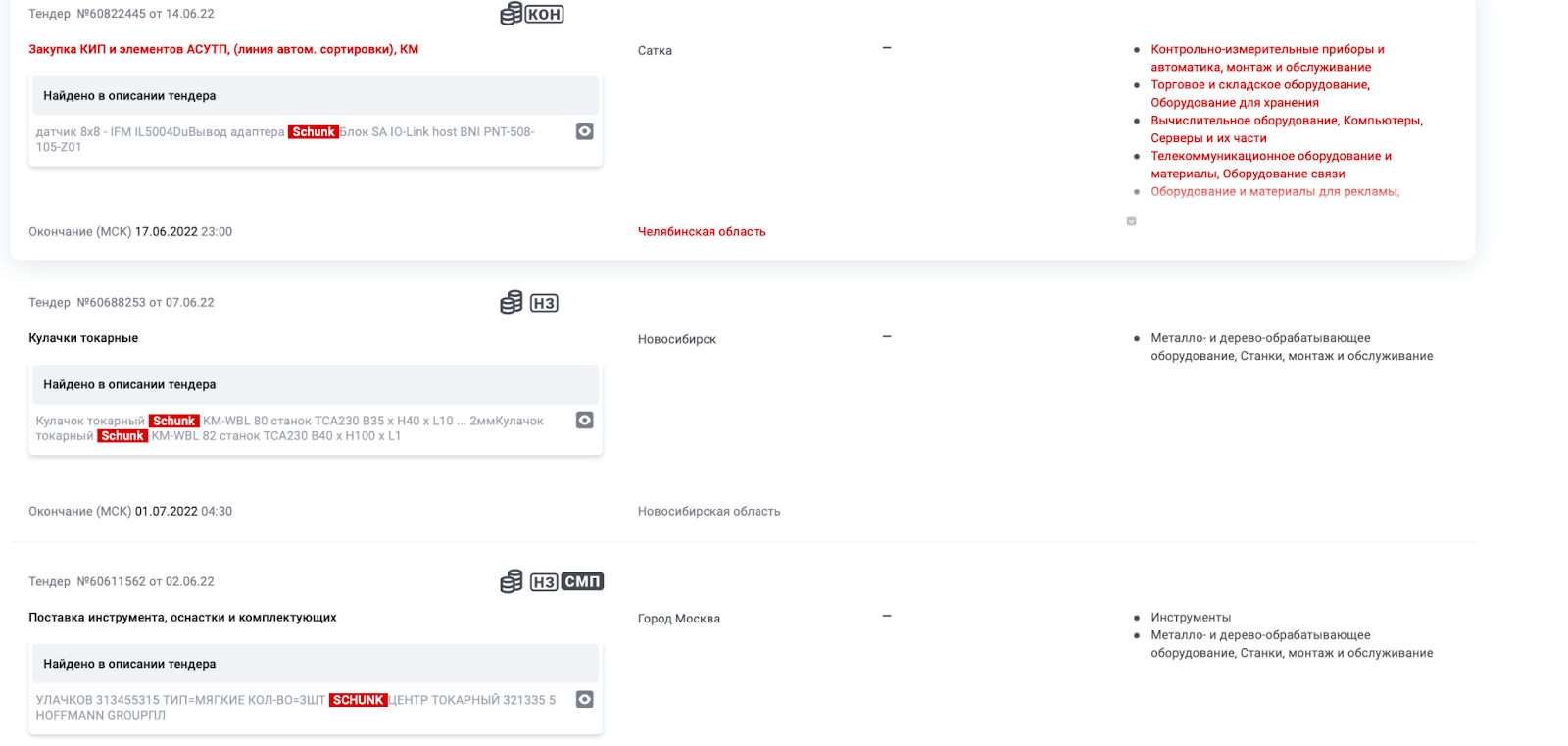
Thus, these businesses will continue receiving maintenance support from the Russian representative office of Schunk, since the company has ignored Russia's aggression against Ukraine.
3. Kemmler: a German tools company helping Russia maintain its nuclear shield
The German company Kemmler GmbH is also currently supporting the Russian military complex. It manufactures innovative and high-precision machine tools and specializes in tooling production for lathes and milling machines.
The company does not have an official representative office in Russia, but it operates in the Russian market through an extensive supplier network.
The company's products are used at Uralmashzavod, the Mayak plant, and the Votkin Machine-Building Plant. The latter manufactures Topol-M missiles, which form the basis of Russia's nuclear shield. Among Kemmler’s customers is the Kalashnikov Group, producing 90% of all small arms in Russia, the NPO Novator, which produces air defense systems, and the Stupino Machine-Building Plant, which manufactures helicopter engines.
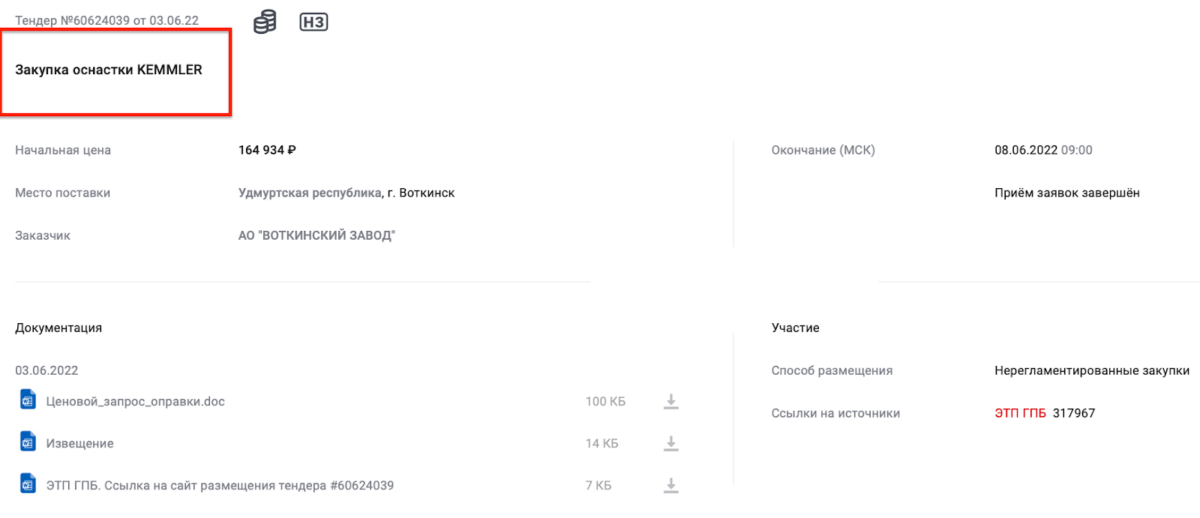
In September 2022, Kemmler's products are in great demand on tender procurement sites in Russia.
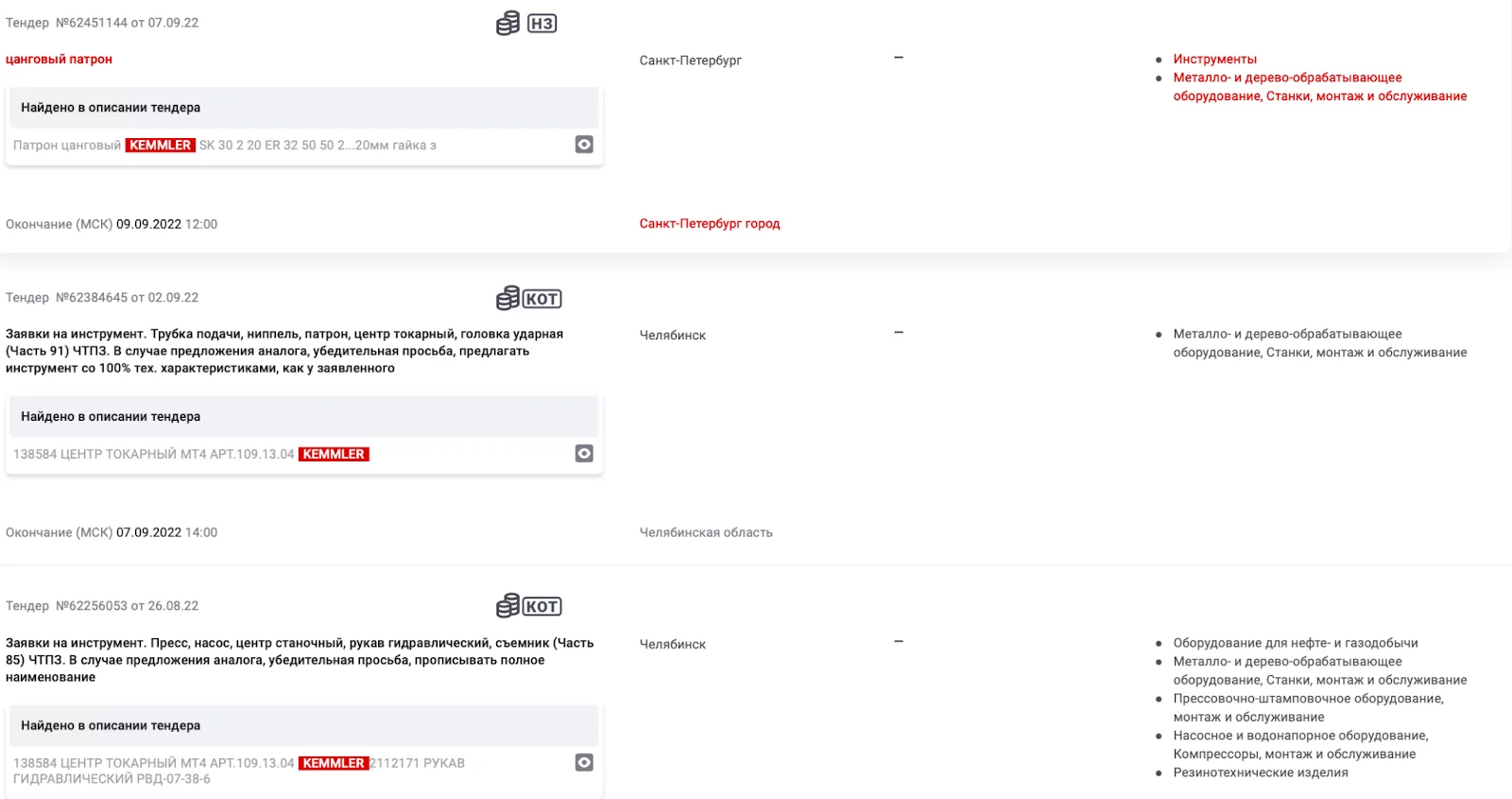
Complicity in Russian war crimes
All foreign companies supplying or servicing Russian equipment should understand one important thing. External support and imported hardware permit Russian military factories to continue to manufacture and service military equipment used in the war on Ukraine, its cities, and its people.
Allowing Russian invaders to continue using their equipment is identical to helping Russia commit war crimes. All foreign companies must immediately stop supplying equipment and providing service support to Russian businesses.
We hole that these companies will not only face the legal consequences but will also take responsibility for their actions and will cease cooperating with Russia.
Currently, while German citizens and authorities express their support for Ukraine, including by supplying military aid, German companies Walter, Schunk, and Kemmler remain operational in Russia. All have provided parts and equipment to key enterprises of Russia's military-industrial complex. The products of all three companies continue to be supplied to Russian state enterprises.
In one instance, parts produced by one of the companies -- Kemmler -- were supplied to a crucial Russian military plant after (sic!) Russia's invasion of Ukraine.
Moreover, the fact that the companies do not withdraw from the Russian market means that they continue servicing their equipment which was previously supplied to the Russian military factories, thus ensuring that Russia's war machine can keep going.
Walter, Schunk, and Kemmler must immediately leave the Russian market.
This is the only way to prevent Russia's military complex from having access to modern technologies.
NOTE: This article was updated after publication to include snapshots from the mentioned tenders and clarifications in the conclusion

Anton Mykytiuk is a member of the National Anti-Corruption Bureau of Ukraine Civil Oversight Council and an expert at the Economic Security Council of Ukraine
Related:
- 31 ways Russia evaded sanctions, boosting its war machine
- Are sanctions against Russia working? What have they achieved? An explainer
- 10 tricks Russia uses to evade sanctions
- Sanctions “catastrophically crippling” Russian economy – Yale study
- Russia’s milk sector was crippled by sanctions. Then British packaging company Mondi came to the rescue
- How to make sanctions really painful for Russia, immediately

